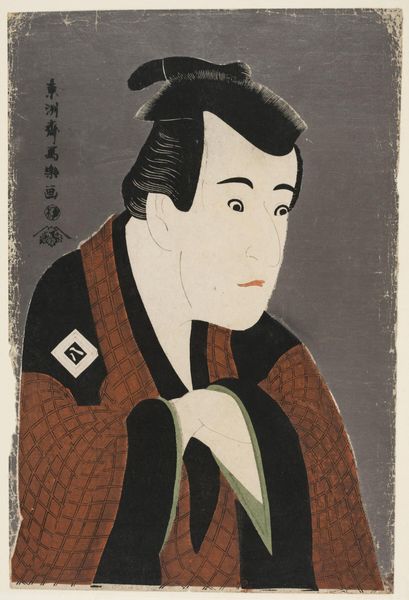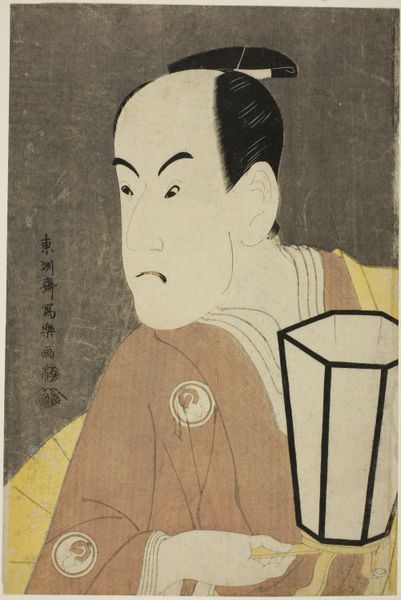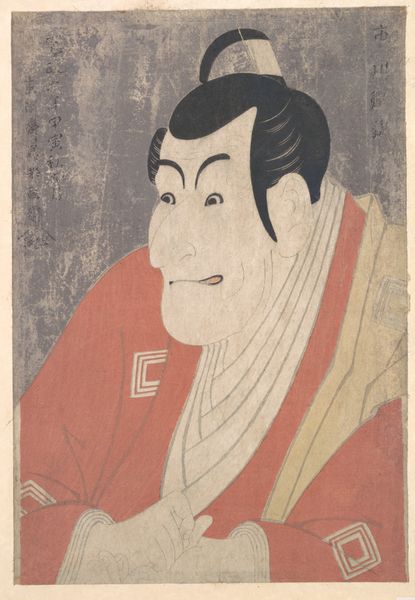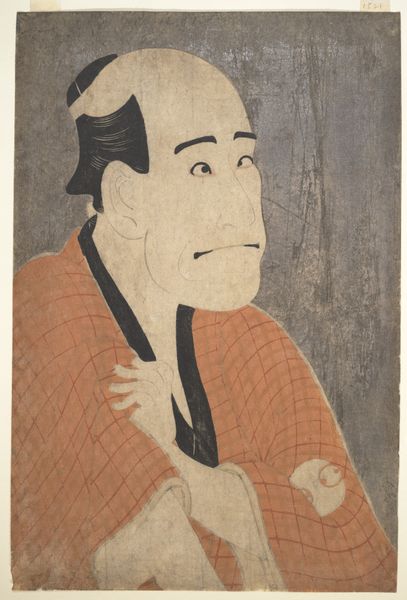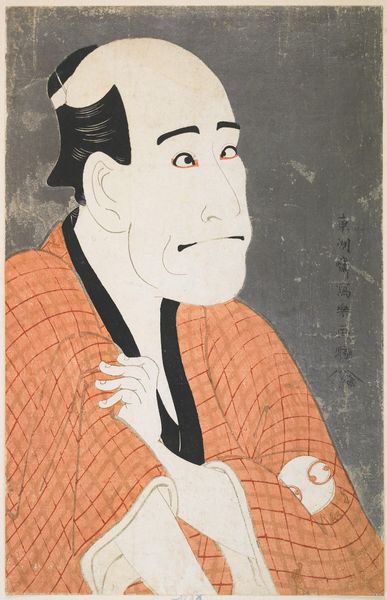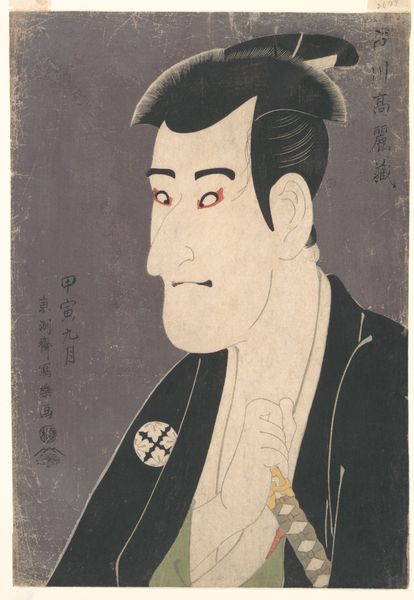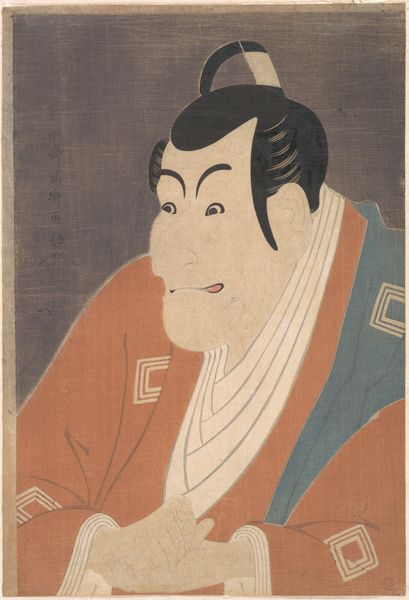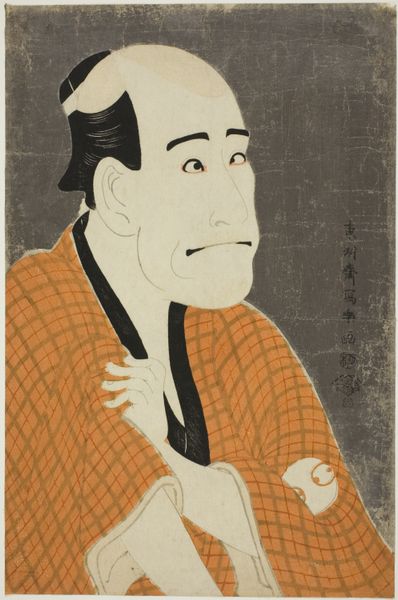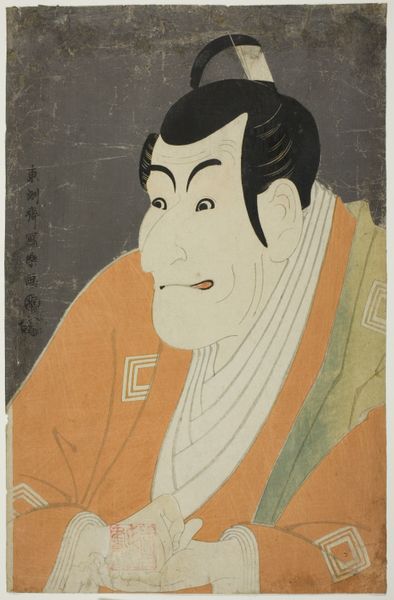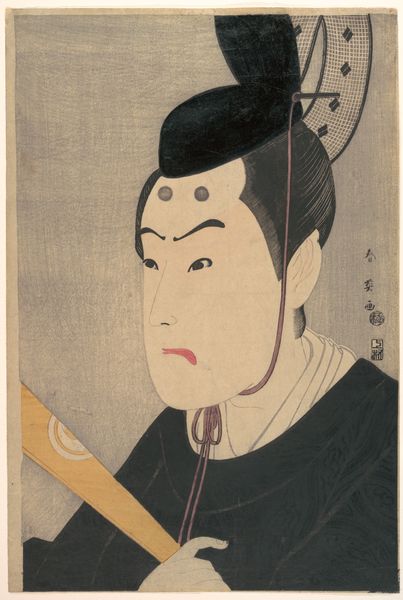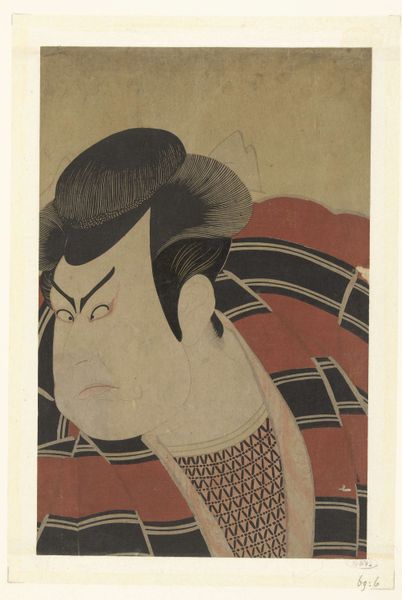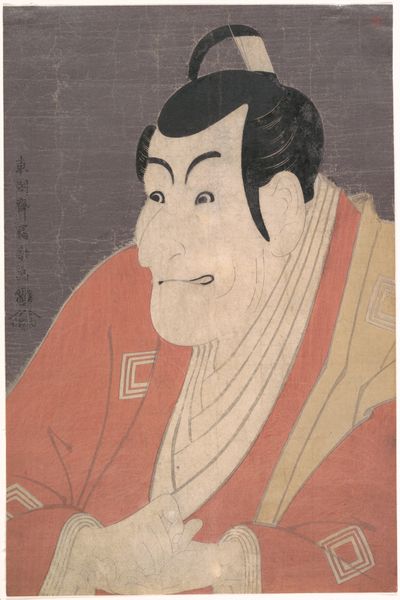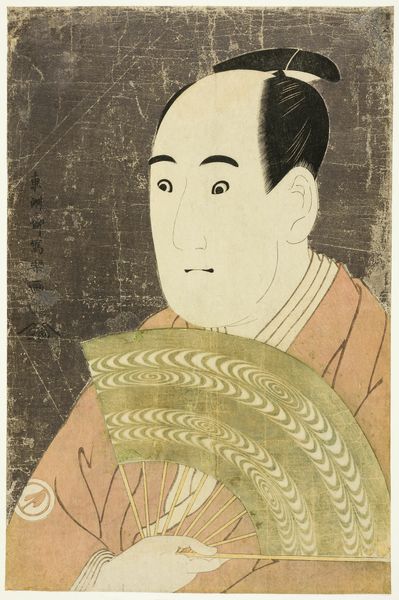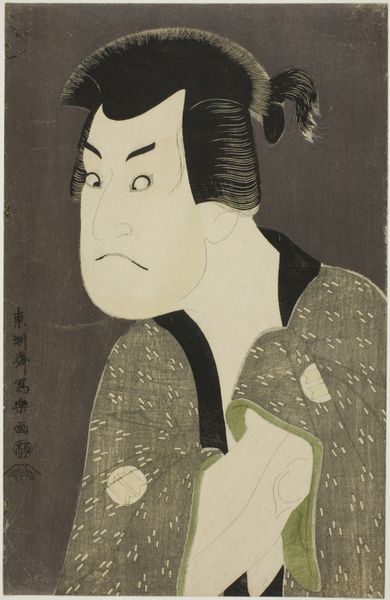
#
portrait
# print
#
caricature
#
asian-art
#
caricature
#
ukiyo-e
#
portrait art
Dimensions: 37.9 × 25.0 cm
Copyright: Public Domain
Editor: Here we have Tōshūsai Sharaku’s print, "The Actor Ichikawa Yaozo III as Tanabe Bunzo," created in 1794. It's such a striking image! The figure's slightly exaggerated features give the piece a somewhat unsettling yet fascinating quality. How do you interpret this work? Curator: Well, let's consider the enduring power of the Kabuki theater, which has shaped Japanese culture for centuries. The actor isn't just a person; he's embodying a cultural archetype. The slightly caricatured style… notice how the eyes seem wider, more alert than perhaps is 'realistic?' That exaggeration highlights inner qualities, doesn’t it? We remember those heightened expressions. It links us to the emotions, the narratives woven into the Kabuki plays. It speaks to a cultural memory of character. Editor: That's a great point about cultural memory. So the exaggerated features aren't just stylistic; they're actually carrying a narrative weight? Curator: Exactly! Think about the actor's robes; the emblem. That symbol is like a mnemonic device, helping the audience immediately identify his lineage, his character type, what’s at stake. Editor: It's amazing how much information can be conveyed through these visual cues. I never thought about caricature as a tool for encoding information rather than simply creating humor. Curator: Precisely. Sharaku isn’t just drawing a portrait, it's imprinting an emotional memory onto a symbol, accessible through generations. So what lasting impact do you think a single image such as this might imprint on its viewer? Editor: This has really given me a deeper appreciation for how visual elements carry layers of meaning, acting as a kind of cultural shorthand. Thank you. Curator: And you've helped highlight how the actor's specific portrayal remains relevant, a continuous thread in understanding cultural identity, then and now.
Comments
No comments
Be the first to comment and join the conversation on the ultimate creative platform.
